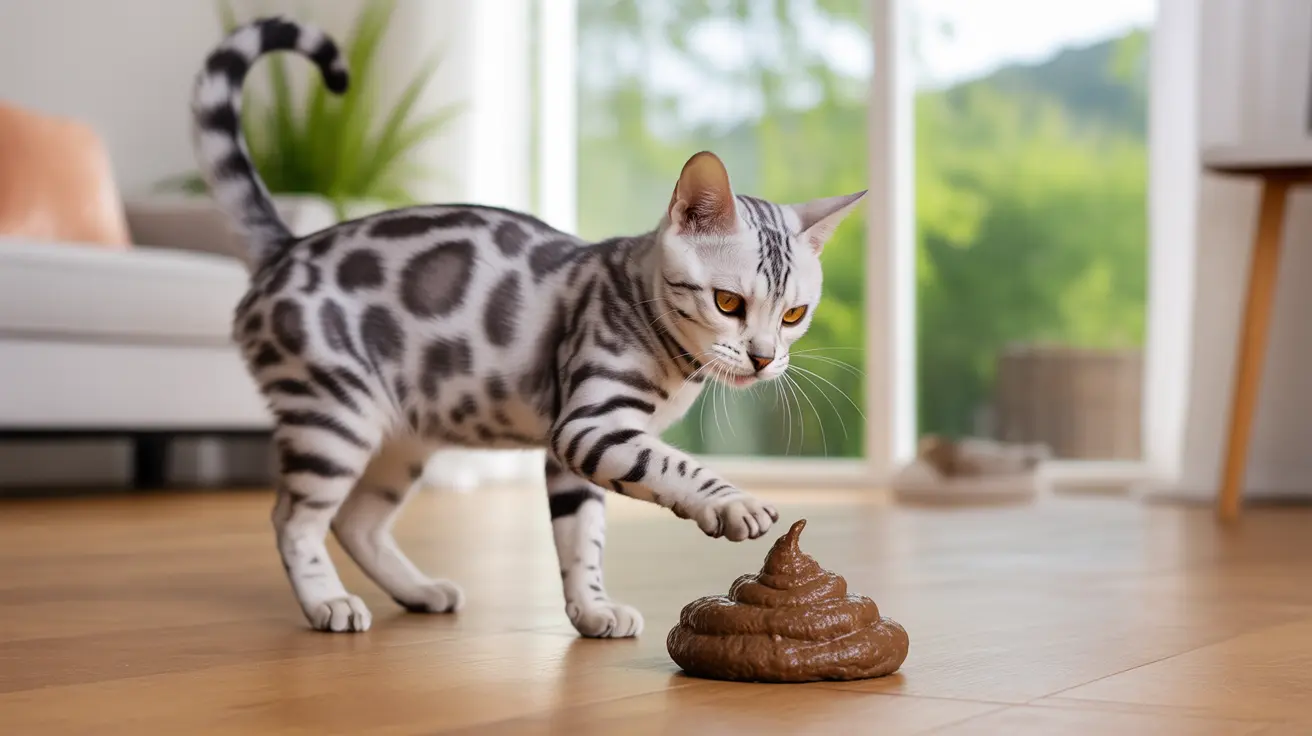Natural Exploratory Behavior in Kittens
Kittens are naturally curious creatures who explore their world through play and interaction. During their developmental stages, they may bat around or play with their feces as part of learning about their environment. This behavior is particularly common when they're first learning to use the litter box.
Most kittens naturally outgrow this phase as they mature and develop proper litter box habits. However, if the behavior persists, it may indicate a need for additional training or environmental enrichment.
Boredom and Lack of Stimulation
Adult cats who play with their poop often do so out of boredom. Without adequate mental and physical stimulation, cats may resort to playing with whatever objects are available – including their feces. This behavior typically signals a need for more engaging activities and environmental enrichment.
To combat boredom-related poop play, ensure your cat has access to:
- Interactive toys and puzzle feeders
- Climbing structures and scratching posts
- Regular play sessions with their human family
- Window perches for environmental stimulation
Litter Box Issues and Environmental Factors
Sometimes, cats play with their poop due to dissatisfaction with their litter box situation. This can stem from several factors:
- Dirty or inadequately maintained litter boxes
- Inappropriate litter box size or style
- Undesirable litter type or texture
- Poor litter box location
- Too few litter boxes in multi-cat households
Ensuring proper litter box maintenance and setup can significantly reduce unwanted behaviors around elimination.
Medical Considerations
In some cases, poop play might indicate underlying health issues. Cats experiencing discomfort during elimination might associate the litter box with pain, leading to unusual behaviors. Medical conditions that could contribute include:
- Gastrointestinal problems
- Parasites
- Inflammatory bowel disease
- Joint pain or arthritis
Prevention and Solutions
To address and prevent poop play behavior:
- Clean the litter box frequently, at least once daily
- Provide multiple engaging toys and regular play sessions
- Ensure adequate litter box quantity and quality
- Consider automatic litter boxes for consistent cleanliness
- Consult with your veterinarian to rule out medical issues
Frequently Asked Questions
Why is my kitten playing with his poop in the litter box?
Kittens often play with their poop as part of normal exploratory behavior while learning about their environment and litter box habits. This typically resolves with age and proper training.
How can boredom cause my cat to play with feces, and what toys help prevent this?
Bored cats may play with feces due to lack of stimulation. Interactive toys, puzzle feeders, wand toys, and regular play sessions can help prevent this behavior by providing appropriate outlets for their energy and hunting instincts.
Could my cat's poop-playing behavior indicate a litter box problem or dissatisfaction?
Yes, cats may play with their poop if they're unhappy with their litter box situation. This could be due to cleanliness issues, inappropriate box size, undesirable litter type, or poor box location.
Are there medical conditions that make a cat play with or avoid covering its poop?
Several medical conditions, including gastrointestinal problems, arthritis, and parasites, can cause unusual elimination behaviors. If your cat suddenly starts playing with poop, consult a veterinarian to rule out health issues.
What are the best steps to stop an adult cat from playing with its feces safely and effectively?
The most effective approach combines maintaining clean litter boxes, providing adequate environmental enrichment, ensuring appropriate medical care, and offering plenty of alternative toys and activities for stimulation.
Conclusion
While cat poop play can be concerning, understanding its causes helps address the behavior effectively. Most cases can be resolved through environmental enrichment, proper litter box maintenance, and ensuring good health. If the behavior persists despite these interventions, consult with your veterinarian for personalized guidance.






